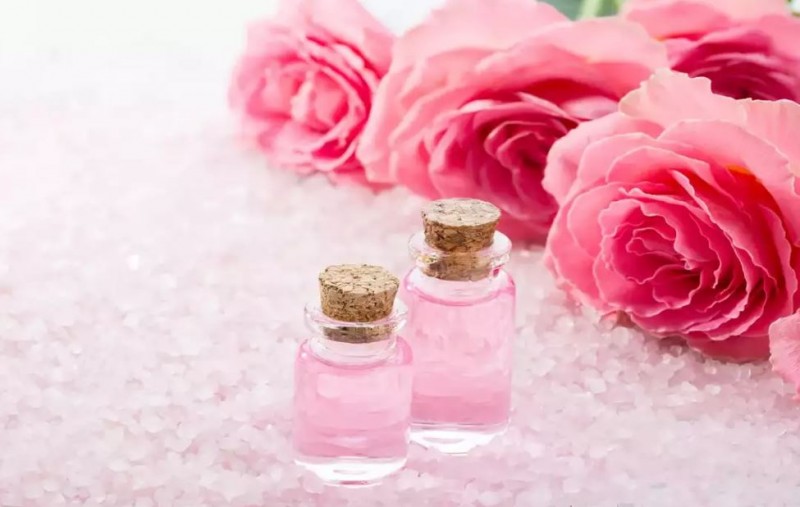
Rose water is a staple in many skincare routines, celebrated for its ability to enhance skin health and impart a natural glow. It’s often used as a toner, in face packs, and even as a soothing mist. While rose water offers numerous benefits, it’s crucial to know which ingredients should never be mixed with it. Combining rose water with the wrong substances can lead to adverse effects, damaging your skin rather than improving it. Here are some key ingredients to avoid mixing with rose water:
1. Baking Soda and Rose Water
Baking soda is often praised for its exfoliating properties and its ability to neutralize acids. However, when mixed with rose water, it can create a concoction that’s too harsh for the skin. The alkaline nature of baking soda can disrupt the skin’s natural pH balance, leading to dryness, irritation, and even breakouts. To maintain healthy skin, avoid using these two together.
2. Lemon Juice and Rose Water
Lemon juice is known for its high vitamin C content and its ability to lighten dark spots. However, its acidic nature can be too strong when combined with rose water. Using this mixture on your skin can lead to increased sensitivity, dryness, and irritation. It’s best to use lemon juice separately or dilute it properly with other soothing agents rather than mixing it with rose water.
3. Essential Oils and Rose Water
Essential oils like tea tree oil, lavender oil, and others are popular for their various skin benefits. However, mixing essential oils with rose water can sometimes result in skin irritation and allergic reactions, particularly for those with sensitive skin. Essential oils are potent and need to be diluted correctly. When combined with rose water without proper knowledge, they can cause redness, itching, and discomfort.
4. Vinegar and Rose Water
Vinegar, especially apple cider vinegar, is often used in skincare for its antibacterial properties. However, mixing vinegar with rose water can lead to an overly acidic solution that may harm your skin. This combination can strip your skin of its natural oils, leading to dryness and potential damage to the skin barrier.
5. Alcohol-Based Products and Rose Water
Alcohol-based products, like certain toners or astringents, can be very drying to the skin. Mixing them with rose water might seem like a good idea to create a balanced solution, but it can lead to excessive dryness and irritation. Alcohol can compromise the soothing properties of rose water, leading to adverse effects.
Tips for Using Rose Water Effectively
To make the most out of rose water in your skincare routine, follow these tips:
Use Pure Rose Water: Ensure that the rose water you use is pure and free from additives. This helps in maximizing its benefits without introducing any potential irritants.
Patch Test: Always perform a patch test when using rose water with new ingredients to ensure that it doesn’t cause any adverse reactions.
Proper Dilution: If you decide to mix rose water with other ingredients, ensure they are properly diluted and suitable for your skin type.
Consult a Dermatologist: For personalized advice and to avoid any skin issues, consult with a dermatologist before making significant changes to your skincare routine.
By being mindful of what you mix with rose water, you can enjoy its full benefits without risking your skin’s health. Rose water can be a wonderful addition to your skincare routine, but like any product, it must be used wisely and with proper knowledge.
Every year so many deaths occur due to polio all over the world, know how India became polio free
What’s the Best Way to Eat Garlic for Maximum Benefits? Keeps Cough or Cold at Bay